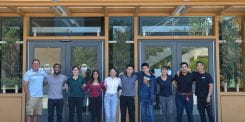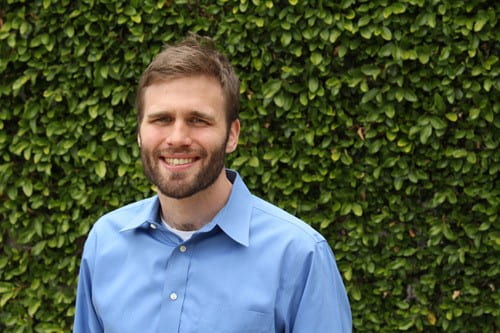UCI professor's life skills course is expanded to all 10 UC campuses
Life 101 teaches students self-care, healthy habits and how to manage stress

Irvine, Calif., Nov. 30, 2020 — Long successful at the University of California, Irvine, Mahtab Jafari’s Life 101 course will be available across the 10 UC campuses during the upcoming winter quarter. The class teaches healthy lifestyle choices, promotes students’ well-being, and helps them to recognize and manage their stress.
“We have an epidemic of stress among college students,” said Jafari, professor of pharmaceutical sciences. “Without a healthy mind and body, it’s impossible to be successful – personally or professionally.”
Over the last several decades, numerous studies and student surveys have found increased undergraduate stress levels, particularly among freshmen as they adjust to new living and academic environments.
Now, with COVID-19 cases continuing to rise around the country and schools being forced to drastically change the way they teach in a short period of time, students face even greater mental and physical health challenges.
“Self-care is a critical element of academic success, and this course presents strategies for mindfulness and emotional intelligence that will support students during the pandemic,” said Ellen Osmundson, program director for the UC-wide Innovative Learning Technology Initiative.
Launched as a UCI pharmaceutical sciences course in 2013, Life 101 teaches students how to manage stress and improve quality of life through topics such as nutrition, exercise, sleep, the effects of performance-enhancing drugs on campuses and even the health benefits of volunteering. From handling personal finances to finding affordable produce, the class equips students to approach the rest of their studies in the best frame of mind and body.
“Taking Life 101 with Dr. Jafari has truly helped me navigate the challenges that I – and many other college students – face relating to school and everyday life,” said Sydney Aimua, who earned a B.S. in chemistry this year. “I learned how to manage my mental health and be more mindful and disciplined with my eating, exercise and sleeping habits.”
Jafari developed the popular course with two undergraduates and continually tweaks the curriculum based on student evaluations and the changing environment outside the classroom. Over the summer, for example, she added a module on anti-racism to address the Black Lives Matter movement and racial tensions.
“I look at this course as a constant work in progress,” Jafari said. “For instance, because of the pandemic, I will include more information on emotional health in the winter quarter.”
Usually held in person, the winter session this year will be fully online to accommodate remote learning and extend the class to all UC students. Jafari expects about 400 to enroll. Every week, they will watch a recorded lecture and online videos, take a quiz, reflect on how the topics relate to their own lives and respond to their peers’ comments.
All of this can be done on their own schedules so that this stress-reduction course does not, in itself, cause stress. Instead, it will be a resource for students to learn from the lectures and each other’s experiences and ideas.
“In the new online learning environment, the greatest challenge to students lies in the lack of social interaction,” Jafari said. By connecting them across campuses, she aims to create “a better sense of community.”
About the University of California, Irvine: Founded in 1965, UCI is the youngest member of the prestigious Association of American Universities. The campus has produced three Nobel laureates and is known for its academic achievement, premier research, innovation and anteater mascot. Led by Chancellor Howard Gillman, UCI has more than 36,000 students and offers 222 degree programs. It’s located in one of the world’s safest and most economically vibrant communities and is Orange County’s second-largest employer, contributing $5 billion annually to the local economy. For more on UCI, visit www.uci.edu.
Media access: Radio programs/stations may, for a fee, use an on-campus ISDN line to interview UCI faculty and experts, subject to availability and university approval. For more UCI news, visit wp.communications.uci.edu. Additional resources for journalists may be found at communications.uci.edu/for-journalists.



